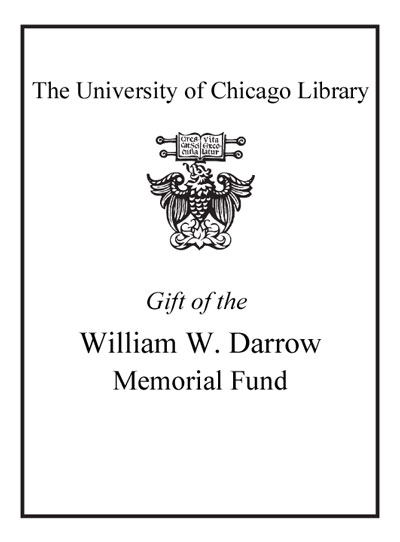Successful grant writing : strategies for health and human service professionals /
Saved in:
| Author / Creator: | Gitlin, Laura N., 1952- |
|---|---|
| Edition: | 3rd ed. |
| Imprint: | New York : Springer Pub. Co., c2008. |
| Description: | xxii, 401 p. : ill. ; 23 cm. |
| Language: | English |
| Subject: | |
| Format: | Print Book |
| URL for this record: | http://pi.lib.uchicago.edu/1001/cat/bib/7188308 |
Table of Contents:
- Preface
- Acknowledgments
- Introduction
- Part I. Getting Started
- Chapter 1. Why Write a Grant?
- 1.1. A Grant Story
- 1.2. The Language of Grantsmanship
- 1.3. Developing a Professional Growth Plan Using a Research Career Trajectory
- 1.4. A Research Career Trajectory
- 1.5. Personal Attributes of Successful Researchers
- 1.6. Overcoming Barriers to Grantsmanship
- Chapter 2. Becoming Familiar With Funding Sources
- 2.1. Sources of Funding for Health and Human Service Professions
- 2.2. Learning About and Keeping Track of Funding Sources
- 2.3. Interpreting Calls for Proposals
- Chapter 3. Developing Your Ideas for Funding
- 3.1. Identifying Ideas With Funding Potential
- 3.2. Ideas That Are Hot and Those That Are Not
- 3.3. Matching an Idea to a Funding Priority
- Part II. The Writing Process
- Chapter 4. Common Sections of Proposals
- 4.1. Description of Common Proposal Sections for Research, Training, and Demonstration Grants
- Chapter 5. Strategies for Effective Writing
- 5.1. Organizing for the Writing Task
- 5.2. Problems With Writing
- 5.3. A Word About Writer's Block
- 5.4. The Grant Writing Team
- Chapter 6. Technical Writing Considerations
- 6.1. Elements of a Concept Paper
- 6.2. Needs Assessments
- 6.3. Pilot Studies
- 6.4. Obtaining Contractual Agreements and Letters of Support
- 6.5. Other Administrative Matters
- Part III. Preparing a Budget
- Chapter 7. Developing a Budget
- 7.1. The Language of Grant Budgets
- 7.2. Considerations in Developing a Budget
- 7.3. Basic Components of a Budget
- 7.4. Budget Justification
- 7.5. NIH Modular Budget Format
- Chapter 8. Putting It All Together to Create a Budget
- 8.1. Constructing a Budget
- 8.2. Thinking Through Project Costs
- 8.3. Consultation and Subaward Considerations
- Chapter 9. Technical Considerations in Budget Development
- 9.1. Governance of Budgets
- 9.2. Budget Forms
- 9.3. Assuring Budget Accuracy
- Part IV. Models for Proposal Development
- Chapter 10. Four Project Structures
- 10.1. Individual Model
- 10.2. Consultative Model
- 10.3. Cooperative Model
- 10.4. Collaborative Model
- 10.5. Choosing an Appropriate Project Structure
- Chapter 11. Understanding the Process of Collaboration
- 11.1. Theoretical Framework for Understanding Collaboration
- 11.2. Roles and Responsibilities of Team Members
- 11.3. Five-Stage Model of Collaboration
- Chapter 12. Forming a Collaborative Team
- 12.1. Forming a Collaborative Team and Evaluating Its Effectiveness
- 12.2. Common Problems in Collaborative Teams and Effective Solutions
- Part V. Submitting the Proposal
- Chapter 13. Learning About Your Institution
- 13.1. Questions to Ask of Your Institution
- 13.2. Institutional Review Board Procedures
- Chapter 14. Electronic Considerations
- 14.1. Benefits of Online Grant Submissions
- 14.2. Common Challenges With Electronic Submissions
- 14.3. Getting Ready for Electronic Submission
- 14.4. The Process
- Part VI. Life After a Grant Submission
- Chapter 15. Understanding the Review Process
- 15.1. Structure of the Review Process
- 15.2. Review Criteria
- 15.3. Scores and Categories of Acceptance and Rejection
- 15.4. Tips for Understanding the Review Process
- Chapter 16. Responding to the Proposal Review
- 16.1. Resubmission Options
- 16.2. Considerations in Reading Reviewer Comments
- 16.3. What to Do if You Believe the Reviewer Was Unfair or Incorrect
- 16.4. Resubmission Process
- 16.5. The Three-Strike Rule
- Chapter 17. A Case Study
- 17.1. Excerpt From a Proposal
- 17.2. A Critique
- Part VII. Strategies for Managing a Grant Award
- Chapter 18. Welcome to the World of Post-Award
- 18.1. Initiating a Grant Award: Administrative Matters
- 18.2. Scientific Start-Up Tasks
- 18.3. Yearly Reports and Administrative Responsibilities
- 18.4. Budgetary Considerations
- 18.5. Getting Ready for the Next Grant Submission
- Chapter 19. More Post-Award Considerations
- 19.1. Federal Agency Requirements
- 19.2. Notification and Implementation Process
- 19.3. Common Agency Reports
- 19.4. Institutional Rules
- 19.5. Budget Management
- 19.6. Academic Policies
- Appendix A. Common Questions and Their Answers
- Appendix B. Selected Key Acronyms
- Appendix C. Selected Web Sites
- Appendix D. Sample Timeline, Budget Sheets, and Flow Charts
- Appendix E. Guidelines for Evaluating Collaborative Teams
- References
- Index

